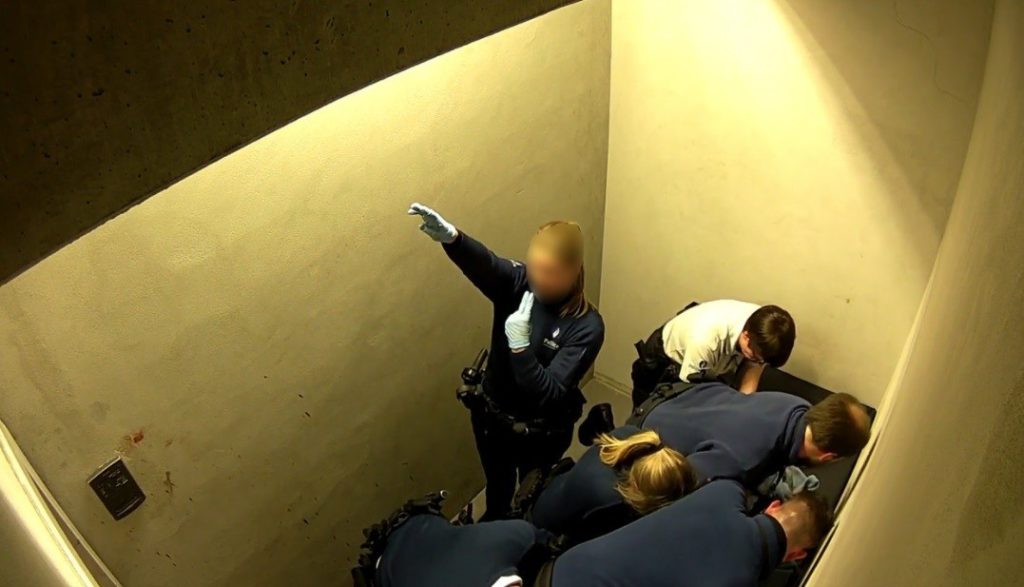Emergency doctors have reacted critically to a new rule introduced by the federal police which says that prisoners in a state of agitation may no longer be locked up in a police cell, but instead taken to the emergency room of a hospital to be examined by a doctor.
The new rule comes after the release of video evidence of the heavy-handed police treatment of Slovak national Jozef Chovanec in 2018.
Officers in the video can be seen sitting on top of Chovanec, which apparently led him to lose consciousness. He was transferred to hospital where he died without regaining consciousness.
Chovanec was detained by police after an altercation on board a flight at Charleroi airport, and taken to a detention cell in the airport itself. On the plane he had been agitated, according to witnesses, and the video shows him later, hitting his head against the cell door repeatedly, his face covered in blood.
Chovanec’s behaviour is attributed to ‘excited delirium syndrome,’ a controversial diagnosis that is not recognised by the World Health Organisation or the Diagnostic and Statistical Manual of Mental Disorders (DSM).
However the federal police has now issued an order saying that detainees who appear to be in a state of excited delirium are not to be confined to a cell, but instead taken to hospital to be examined by a doctor.
The instruction also says that a senior police officer must come to the scene, the emergency doctor should examine the person as soon as possible, and that the police officers themselves must remain calm and avoid prolonged physical contact with the person.
“There is now a clear guideline,” said police spokesperson Sarah Frederickx.
“This is a first step. We will review training next, and then there will be a meeting with all emergency services and doctors.”
But the new rule has encountered some opposition from physicians.
“The emergency services are not ready for this,” Jan Stroobants, president of the Belgian association of emergency physicians, told VRT radio.
“History repeats itself: we already experienced a shock wave after the death of Jonathan Jacob ten years ago. There were many meetings with police, prosecutors, psychiatrists and emergency services. The conclusion then? There is a need for medical units in a prison context or a prison unit in a hospital. It is not that simple to take such people to an emergency department. They disrupt everything and need continuous supervision.”
Jonathan Jacob, aged 26, died in police custody in January 2010 in almost exactly the same circumstances, and that case was also accompanied by a leaked video. The officers involved then, all members of the Special Intervention Squad, were initially sentenced to four months suspended, increased on appeal to six months for six members of the team and nine months for the team leader, all suspended.
The recommendations by a special investigation were handed over to the government in 2013, but Dr Stroobants now says nothing has been done.
“We are still waiting for answers to the questions we asked seven years ago. We should send that letter with recommendations again this time.”
Ann Van De Steen, counsel for the Chovanec family, told De Standaard the family is satisfied, but has mixed feelings.
“If this measure had been in place before, Jozef would still be alive. And there were earlier opportunities – after the death of Jonathan Jacob, for example.”
Alan Hope
The Brussels Times

